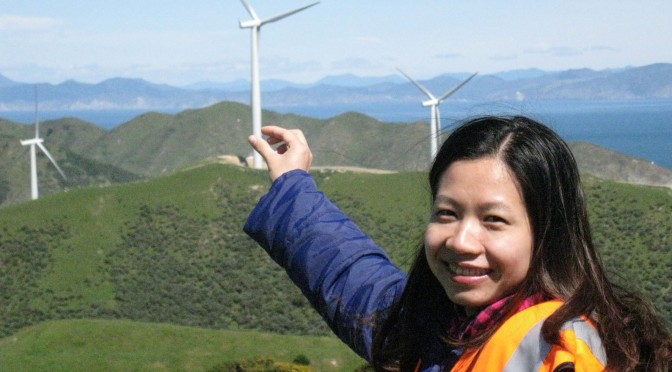The central province of Ninh Thuan
aims to become a renewable-energy centre of the country, with
assistance from the central government’s preferential policies.
Bui Nhat Quang, Vice Chairman of the Vietnam
Academy of Social Sciences, said at a recent conference on renewable energy
held in the province that the development of renewable energy such as wind and
solar energy has become a necessity in a time of depleting natural resources
such as fossil fuels.
Experts noted that the province should be
careful about building too many wind and solar power plants as they could
overwhelm the transmission capacity of the existing national grid in the
province.
To solve the problem, the Government should build
more 220-500KV transmission lines and stations to serve wind and
solar power plants in the province, they said.
Dr Nguyen Tat Thang, of the National Economics
University, said Ninh Thuan should also seek more investment capital, land
and human resources to develop the projects.
The Government and the Ministry of Industry and
Trade have approved 30 solar power projects in the province with total capacity
of more than 1,800MW and total registered capital of over 50 trillion
VND (2.13 billion USD).
Blessed with abundant sunshine and wind all year
round, Ninh Thuan province is currently home to 25 solar power
projects.
The province has a high level of sunshine
hours (2,467) per year and solar radiation per square metre (1,700kWh),
making it ideal for solar energy projects.
Under Ninh Thuan’s green energy plan, by
2030 the province is expected to reach a total capacity
of 1,500MW in wind energy and 3,912MW in solar
energy.
To attract more renewable energy projects,
provincial authorities are offering incentive policies to investors.
For example, renewable energy investors enjoy a
waiver of land-lease fees for the entire project’s lifetime, as well as
corporate-tax exemption for the first four years and a corporate tax rate of 10
percent for the next nine years, half the standard rate. The import
tax for procurement of fixed assets in renewable projects will also be
reduced to zero.
However, investment in renewable energy still
faces challenges such as higher costs, complex technology, and legal
bottlenecks, according to energy experts.
Pham Van Hau, Vice Chairman of the Ninh Thuan
People’s Committee, said the provincial People’s Committee would continue to
direct its agencies to work with investors to settle problems related
to land clearance and business procedures.
When wind and solar energy projects
begin commercial production, they will not only
provide significant contributions to Vietnam’s energy security, but
also contribute to local socio-economic development, he said.
Ninh Thuan leads the country in developing
renewable energy, with a total of eight wind and solar power projects already
in commercial operation.
In January, the BP Solar 1 solar power plant
opened in the province, becoming the first Vietnamese-built solar
power project to be connected to the national grid.
The project, including transmission lines and
transformation stations, is expected to generate 74.45 million KWh per
year.-VNA

